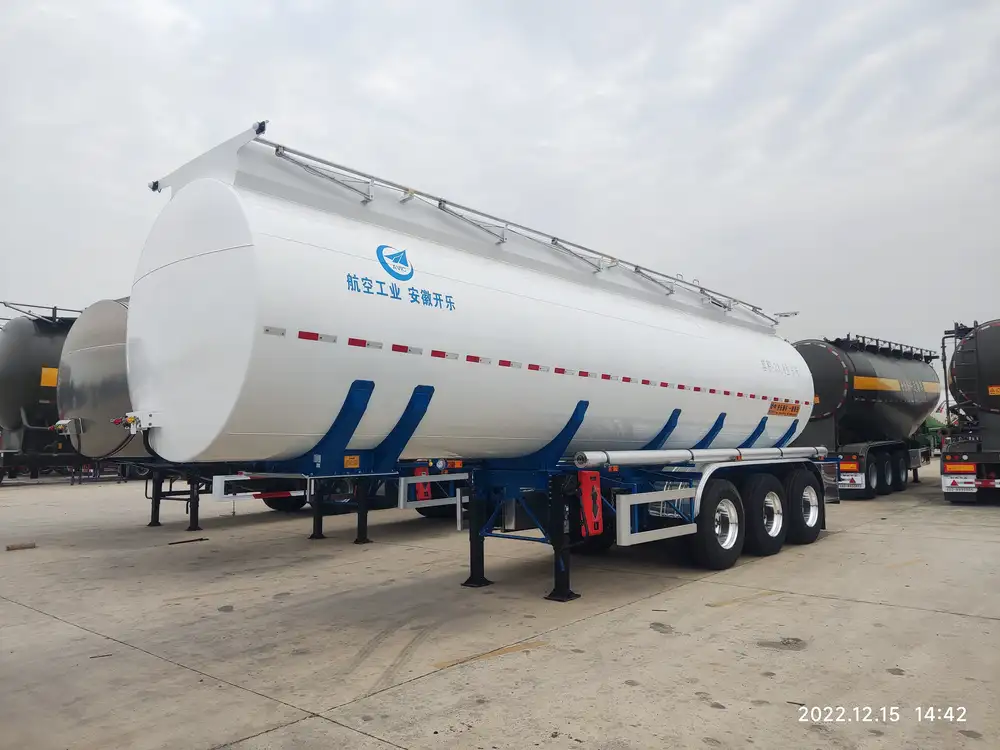In the vast and diverse markets of Cameroon, where the transportation sector thrives on the backbone of heavy-duty vehicles, selecting the right gas tank for your truck can mark the difference between success and stagnation. As a leading manufacturer of semi-trailers, CarMax Vehicle understands the critical importance of durability, efficiency, and value when it comes to gas tanks for trucks. This comprehensive guide examines the various facets surrounding purchasing a gas tank for trucks in Cameroon, from types and specifications to installation and maintenance.
Understanding Gas Tanks: A Necessity for Truck Performance
Before diving into specifics, it is essential to recognize why gas tanks play a pivotal role in truck operations. The gas tank serves several critical functions:
| Function | Description |
|---|---|
| Fuel Storage | Safely holds fuel, ensuring adequate capacity. |
| Safety Features | Prevents leaks and combustibility hazards. |
| Compatibility | Tailored to specific truck models for optimal use. |
Types of Gas Tanks Available
When looking for a gas tank for a truck for sale in Cameroon, one must first consider the various types available. The types of gas tanks can significantly affect performance and efficiency.

1. Steel Gas Tanks
Steel gas tanks are renowned for their resilience. They can withstand harsh environmental conditions and offer an extended lifespan. However, they are heavier.
- Pros: Durable, resistant to damage.
- Cons: Heavier, may rust over time.
2. Aluminum Gas Tanks
Aluminum gas tanks are lightweight and resistant to corrosion, making them suitable for various climates.
- Pros: Lightweight, anti-corrosion.
- Cons: Higher initial cost, less durability against impacts compared to steel.
3. Polyethylene Tanks
These tanks are relatively new entrants in the market, made from high-density polyethylene. They are tough and lightweight.
- Pros: Affordable, lightweight, and non-corrosive.
- Cons: Susceptible to environmental factors, may not withstand extreme temperatures.

Key Specifications to Consider
When in the market for a gas tank for your truck in Cameroon, there are several specifications that play a crucial role in your decision-making process. Here’s what to assess:
| Specification | Description |
|---|---|
| Capacity | Choose a tank that accommodates the required fuel volume—commonly ranges from 50-150 gallons. |
| Dimensions | Ensure the tank fits your truck model with space for installation and alignment. |
| Material | Decide on the material based on durability needs, budget, and weight preference. |
| Fuel Compatibility | Verify the tank’s compatibility with different fuels, such as diesel or gasoline. |
| Mounting Options | Look for tanks with flexible mounting and bracing options for robust installation. |
Installation Insights: Steps for a Successful Fit
Ensuring the gas tank makes a seamless fit and functions optimally is paramount. Here’s a step-by-step installation guide:
- Gather Required Tools: Wrenches, screws, and a secure space for installation.
- Safety Precautions: Make sure that the vehicle is turned off and parked on a flat surface.
- Remove the Old Tank: Disconnect fuel lines and mounting brackets carefully to prevent leaks.
- Install New Tank: Position the new gas tank in place, using mounting brackets to secure it.
- Reconnect Fuel Lines: Ensure all connections are tight and leak-proof.
- Test the System: Before putting the truck back into service, conduct a thorough inspection for leaks and ensure proper function.
Maintenance: Keeping Your Gas Tank in Optimal Condition
After installing a gas tank, it’s essential to make maintenance a priority for longevity and performance. Regular inspections can prevent significant issues down the road.

Maintenance Checklist
| Task | Frequency | Description |
|---|---|---|
| Visual Inspection | Monthly | Check for rust, leaks, and physical damage. |
| Fuel Quality Assessment | Every Fill-Up | Ensure you are using clean, appropriate fuel; contaminants can damage the tank. |
| Tightening Connections | Bi-Annually | Make sure fuel lines and mounting brackets are secure. |
| Professional Evaluation | Annually | Consider having a professional look at your tank and surrounding components for wear. |
The Search for Quality: Why Choose CarMax Vehicle
As a reputable manufacturer of semi-trailers and related products, CarMax Vehicle is dedicated to providing high-quality gas tanks that meet the stringent demands of the trucking industry in Cameroon. Our gas tanks for trucks are designed with both performance and safety in mind, ensuring that you get the best value for your investment.
Unique Selling Points
- Durability Assured: Our tanks undergo rigorous testing to meet and exceed industry standards.
- Customization Options: Tailored solutions to match specific truck models and customer requirements.
- Expert Support: From selection to installation, our dedicated team provides expert guidance and assistance.

Conclusion
The journey of procuring a gas tank for your truck for sale in Cameroon should be approached with careful consideration of material, functionality, and overall fit. Understanding the types, specifications, and maintenance needs can lead you to make an informed decision that not only enhances the efficiency of your vehicle but also promotes the longevity of your investment. With reliable options from CarMax Vehicle, we ensure that your truck remains a pillar of strength on the road.
FAQs
Q1: What is the average lifespan of a gas tank for a truck?
A1: The average lifespan can vary based on material and use, typically lasting between 10 to 20 years with proper maintenance.
Q2: Can I install a gas tank by myself?
A2: Yes, with the right tools, knowledge, and safety precautions, DIY installation is possible. However, professional installation is recommended for optimal safety.
Q3: How often should I check my gas tank for wear?
A3: It’s advisable to carry out visual inspections monthly and aim for a professional assessment annually.
Q4: Do I need a special license to purchase a gas tank in Cameroon?
A4: Generally, no special license is required, but ensure adherence to local regulations regarding fuel storage and transportation.













Reviews
There are no reviews yet.